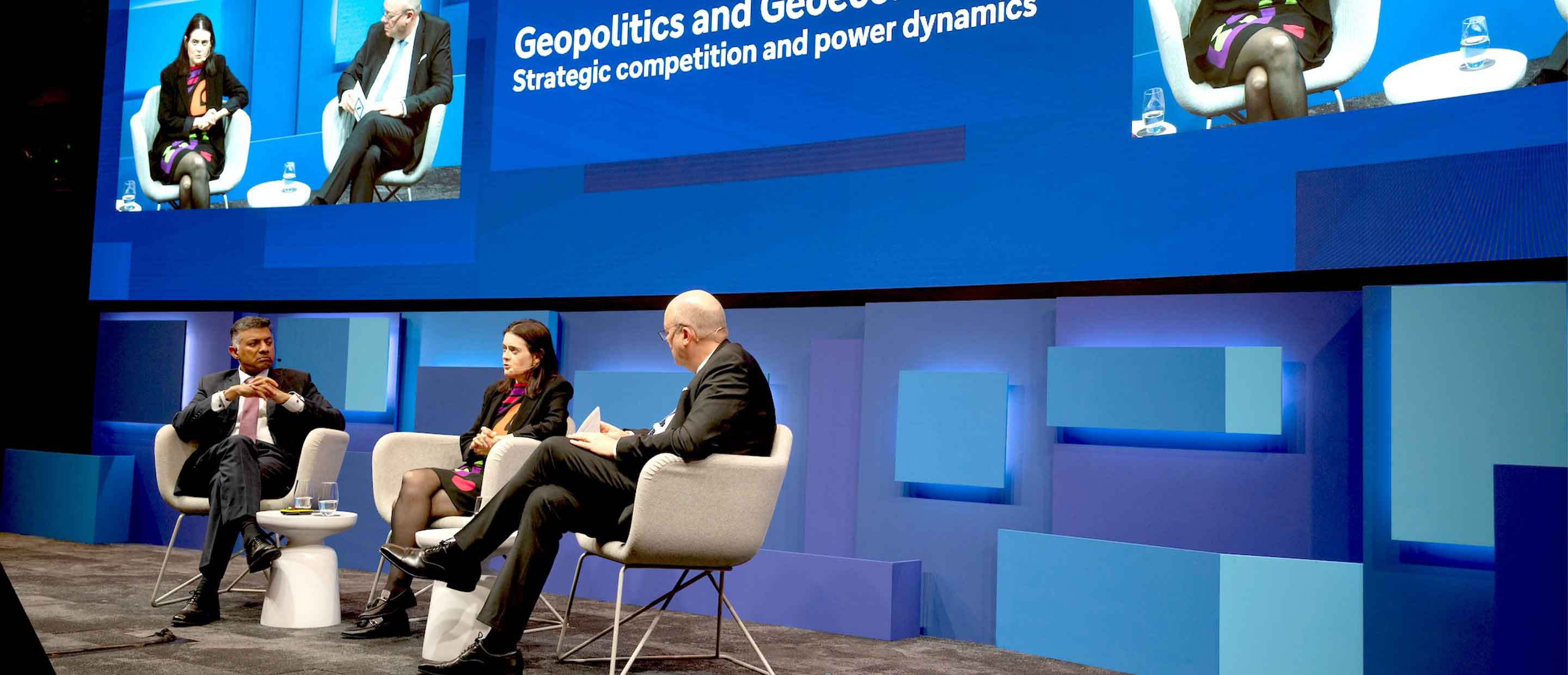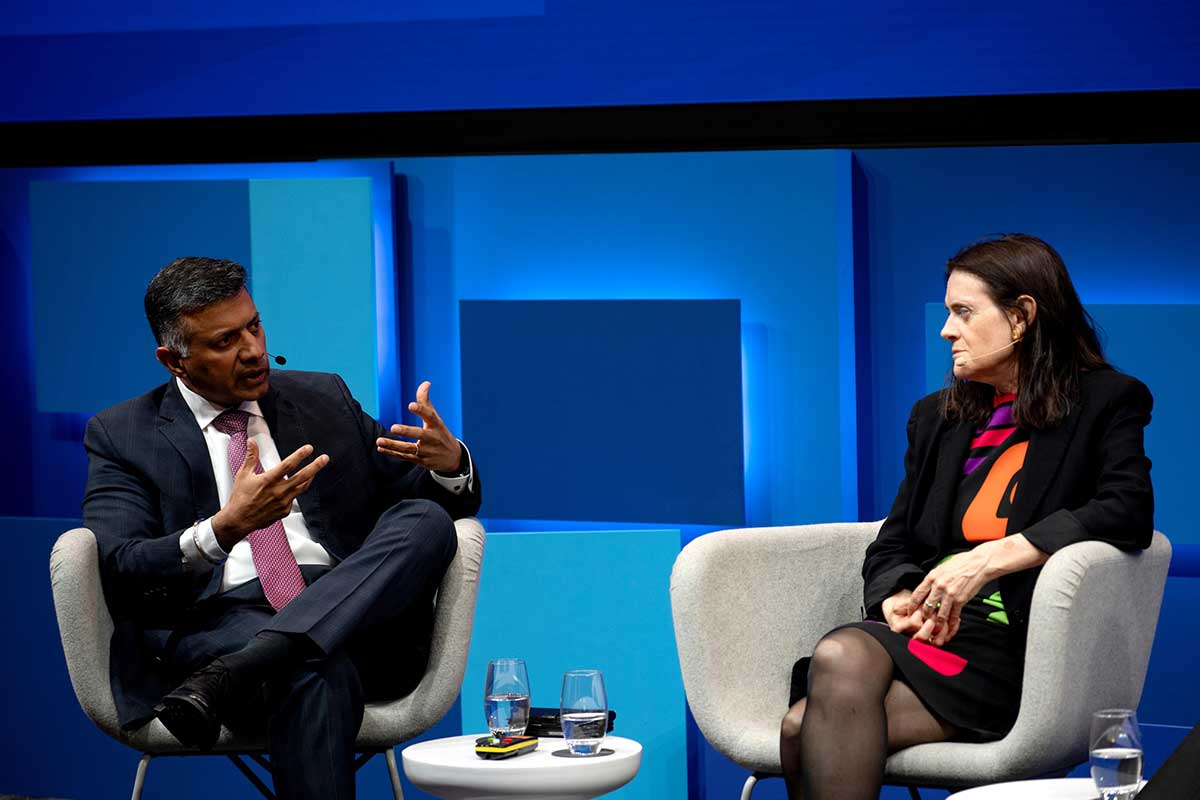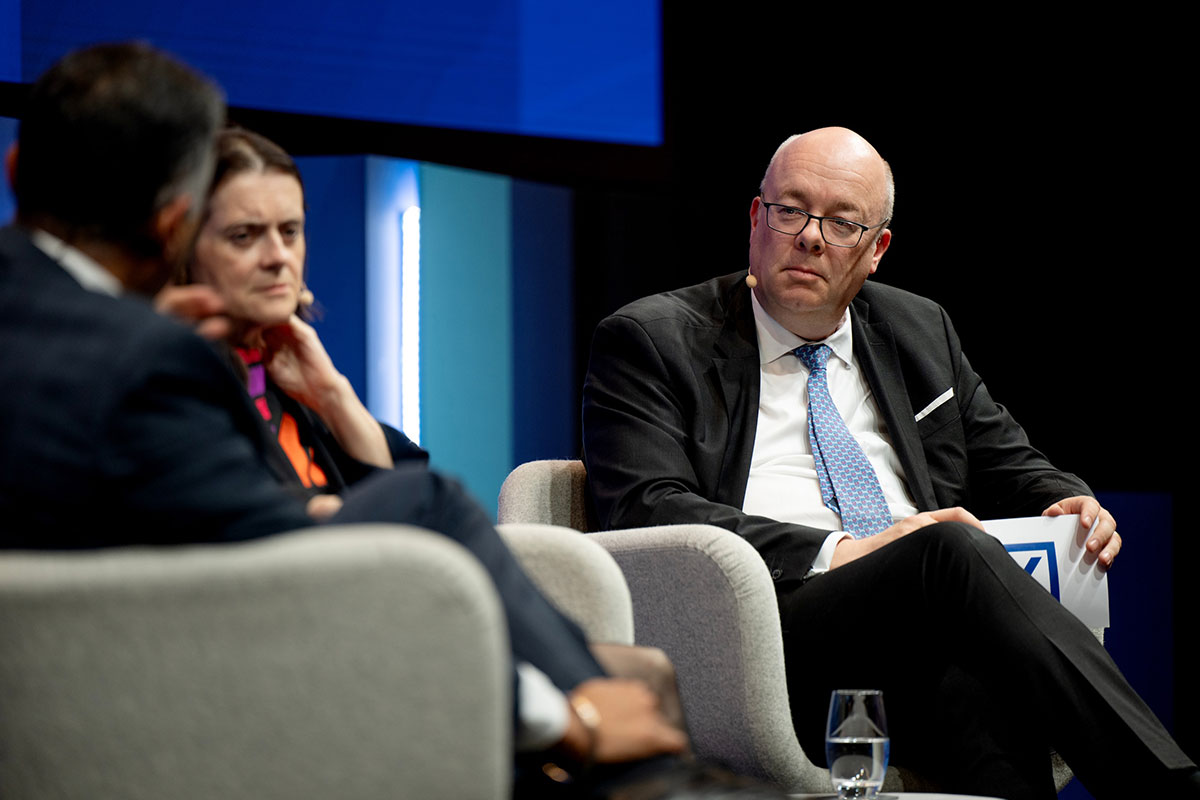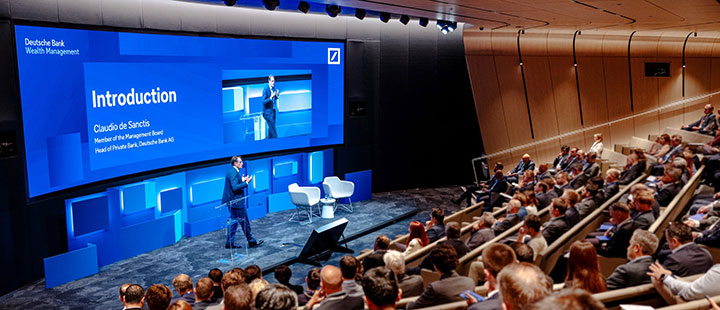
Geopolitics and geoeconomics: the new world order
India’s High Commissioner to the U.K. and the head of Chatham House shared timely insights as we discussed the latest disruptions to international norms.
The US-China rivalry, the implications of de-dollarisation, and an era of new challenges and opportunities for Europe were just some of the big themes explored in this session on geopolitics and geoeconomics, moderated by Christian Nolting, Global Chief Investment Officer of the Private Bank.
Our panellists for this session were Bronwen Maddox, Director and Chief Executive of Chatham House, The Royal Institute of International Affairs, and His Excellency Mr Vikram K. Doraiswami, Indian High Commissioner to the United Kingdom, and we extend our sincere thanks to them for their time and contributions.
US-China rivalry balanced by “mutual dependency”
The shifting power balance between the U.S. and China is one of the defining stories of the 21st century. “The U.S. has never had a rival quite like China,” said Maddox, adding that the rivalry encompasses ideology, economics and military power. “The U.S. in many ways is trying to work out how to respond to that.” While the global consequences are far-reaching, she believes a war between the world’s two biggest economies is unlikely.
Doraiswami contrasted the relationship with US-Soviet relations during the Cold War, “where you broadly had two separate camps which didn’t really integrate with each other.” Today, the U.S. and China are “deeply intertwined” in terms of geoeconomics, technology and geopolitics. From rare earth minerals to complex supply chains to China’s holdings of U.S. Treasury Bonds, examples abound. “The level of mutual dependency is unprecedented,” Doraiswami said. Many of the tensions that arise between them can therefore be viewed as “an exercise in shadowboxing”, he suggested.
However, the changing shape of U.S. foreign and economic policy has “concentrated minds” in Europe and the U.K. when it comes to defence spending, said Maddox. She also sees new partnerships being forged between “middle powers” who may feel they cannot “count on the U.S. in quite the same way” but “perhaps don’t want to be in China’s camp either”. This trend can have a stabilising effect on global geopolitics, she believes, creating new alliances between nations in Europe, Asia and Africa. India, said the High Commissioner, wishes to be “not non-aligned but multi-aligned”, enjoying strong relationships with the US, Europe and others, including the Middle East.
De-dollarisation and a diminishing U.S. role in global governance
Growing doubts about the U.S. dollar’s future as the dominant global reserve currency are prompting many countries to diversify their holdings with gold and other leading currencies. But Doraiswami suggested the world should be cautious about welcoming such a change. “If there is one country in the BRICS framework, for instance, that is not talking up de-dollarisation, it's definitely us,” he said. “I think we should be clear that there isn't currently a realistic alternative to the U.S. dollar that doesn't cause significant disruption.”
In a decade from now, Maddox expects the U.S. “will have a diminished role in the world, partly by choice”. Future presidents, she suggested, will find it difficult to restore the US’s former status within institutions of international governance even if they wish to.
The digital revolution reshaping finance, medicine, and defence
Asked by Nolting about significant changes we’re likely to see by 2030, Maddox said the impacts of “the digital revolution” will become clearer. She named finance, medicine and defence as three industries undergoing particularly profound changes as a result. People in medicine are “fizzing with excitement” at the new possibilities being unleashed, she said. While there is “inevitable gloominess” about geopolitics today, we may eventually look back at these years and recognise the “incredible creativity of what is going on in the tech revolution”.
Geopolitics, geoeconomics and technology are converging to speed up changes to the global order, said Doraiswami. International systems of trade, finance and politics could all be reshaped. “We should certainly be looking at expanding our options rather than narrowing them down,” he said. “The conflicts of today may well not be the conflicts of tomorrow.”
Furthermore, technology is now so crucial that India is viewing it “separately as a discrete piece of our partnerships with major partners”. He cited personalised medicine, the “convergence between entertainment and information” and “transformative energy solutions” as key areas to watch.
Challenges and opportunities for investors in the new multi-polar world order
“Europe has a chance to reconsider what it wants to be in the world,” said Maddox. She listed competitiveness, acting as a unified entity on the global stage and creating new alliances as major challenges for the European Union. Europe’s push for renewed investment in wind power and electric vehicles — helping to strengthen energy security — is also curbing Germany’s drive to expand economic ties with China, she said.
Indian Prime Minister Narendra Modi has recently expressed confidence in reaching a free trade agreement with the EU this year[1]. World events could see compromises that “park the best in favour of just getting the good”, said Doraiswami. Turning to private investors, he highlighted the strong performance of Mumbai’s BSE stock market and rising investment in roads, the electrification of railways and green energy in India, with high-quality private capital being sought for the national infrastructure fund.
Key takeaways
- While the rivalry between the US and China has far-reaching global consequences, mutual dependency means they are often “shadowboxing” and our panellists viewed a war between the two as unlikely.
- New partnerships are being forged between “middle powers” and this trend could have a stabilising effect on global geopolitics; India, for example, wishes to be “not non-aligned but multi-aligned”.
- De-dollarisation may be casting doubt on the US dollar’s future as the dominant global reserve currency, but there is no clear alternative that would not create “significant disruption”.
- Finance, medicine and defence are among the sectors being profoundly reshaped by the “incredible creativity” of the digital revolution. The convergence of geopolitics, geoeconomics and technology could also speed up changes to international systems of trade and politics.
- Europe has an opportunity to “reconsider what it wants to be in the world” but faces challenges in raising competitiveness and showing it can act in a unified way on the global stage.


